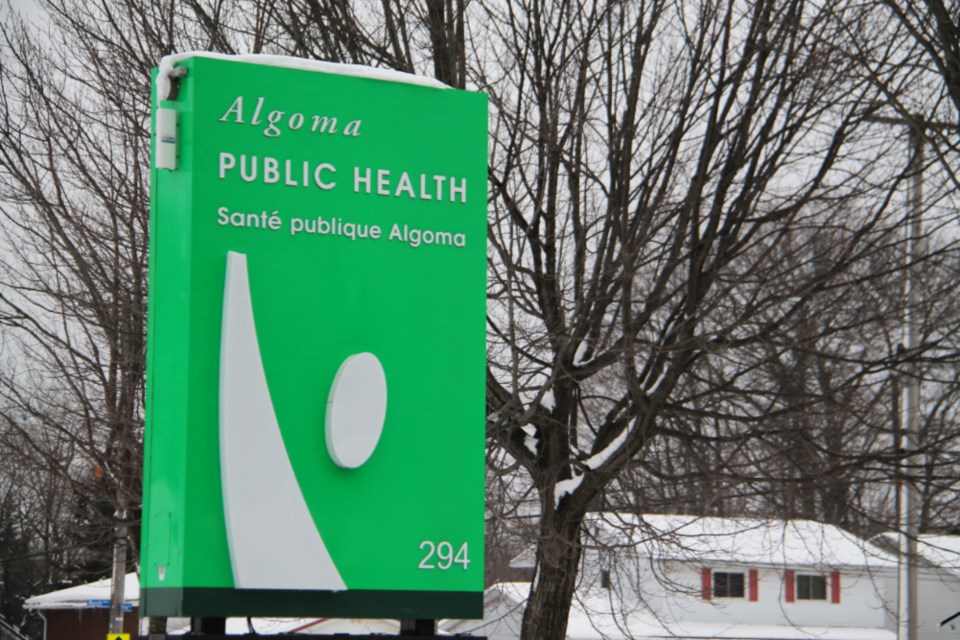Algoma Public Health (APH) will be penning a letter to politicians, urging them to approve a new drug withdrawal facility for Sault Ste. Marie.
The APH board of directors, at its Wednesday meeting, passed a resolution aimed at pressing the powers that be to support Sault Area Hospital’s quest to gain Ontario government approval for a new Level III Withdrawal Management Services facility to address the opioid problem in Sault Ste. Marie.
Dr. Marlene Spruyt, APH medical officer of health and CEO, said “there hasn’t been traction on this from the government.”
As reported earlier by SooToday, it is hoped Sault Area Hospital’s proposal for a new 33-bed Withdrawal Management Services facility will be given the green light by the province, SAH having requested $11 million for construction of the facility, with an additional, ongoing request for $5.8 million for operational expenses.
The Level III facility would replace the existing 16 bed SAH detoxification centre located at 911 Queen St. E.
The Level III Withdrawal Management Services facility, if and when it is built, would be the fourth such centre in Ontario.
Level I and II withdrawal management involves a supportive environment such as residential withdrawal, whereas Level III also involves medical withdrawal management.
The APH resolution states the health unit will write to Ontario’s Minister of Health and Long-Term Care and area politicians (such as Sault MPP Ross Romano and Algoma-Manitoulin MPP Mike Mantha) to request the approval of funding for a regional level III residential withdrawal management services facility in Sault Ste. Marie.
The resolution also states correspondence of the resolution will be copied to the federal Minister of Health, MPPs across northeastern Ontario, the Chief Medical Officer of Health of Ontario, the Boards of Health of northeastern Ontario, the councils of Algoma municipalities and the Sault Area Hospital CEO.
Meanwhile, stating she and other health professionals ‘abhor’ smoking of tobacco and marijuana, Dr. Heather O’Brien, an APH board member, raised the issue of edible cannabis use at Wednesday’s meeting.
Following the federal government’s legalization of recreational marijuana smoking in Oct. 2018, edible cannabis products are due to be legalized in Ontario in October 2019.
With O’Brien asking for input as to why cannabis cannot be sold in measured doses in capsules, Spruyt said she “suspects” there is a market for different brands of edible cannabis, in the same way different brands of alcohol are marketed, with a great deal of money to be made by those who will market edible cannabis products.
The question arose after a presentation entitled ‘A Changing Landscape: Cannabis and Public Health,’ given at Wednesday’s meeting by Kristy Harper, APH community program manager and chief nursing officer.
Harper said “it (abuse of edible cannabis) is on our radar (to monitor) once it becomes legal.”
Dr. Jennifer Loo, APH associate medical officer of health, said APH hopes the province will educate the public on cautionary measures regarding edible cannabis products, such as urging Ontarians not to leave them within reach of children and pets.
Harper’s presentation highlighted the harmful effects of long-term marijuana smoking, such as smoke affecting the lungs and cognitive damage, pointing out one in six people who use marijuana will likely develop an addiction to the substance if they begin using it during their youth.
Harper reported an estimated 46.2 percent of people in Algoma have used marijuana in their lifetime, compared to the overall provincial rate of 39.4 per cent.
28.3 per cent of youth in Algoma have used marijuana in their lifetime, compared to 22.9 per cent province wide, Harper added.
Harper said it is imperative youth continue to be educated about marijuana use, suggesting many youth are not aware of marijuana’s potentially harmful effect.
